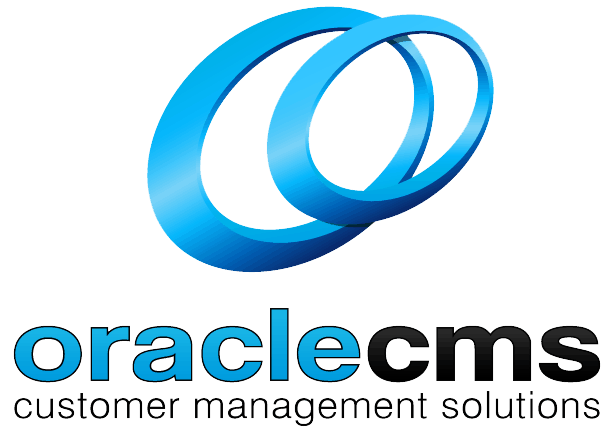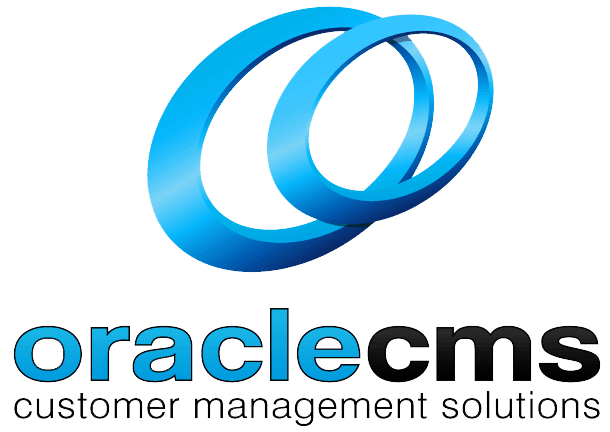
Choosing Between In-House and Outsourced Answering Services
Effective call management is crucial for any business, regardless of size or industry. Whether handling customer inquiries, managing appointments, or providing support, how a company manages phone interactions can significantly impact customer satisfaction and overall business success. One of the key decisions businesses face is whether to manage answering services in-house or outsource them to a specialised provider. This article explores the pros and cons of both options, helping you make an informed decision that aligns with your business goals.
Understanding In-House Answering Services
Definition and Setup
In-house answering services are managed internally by a company’s employees. This setup involves hiring and training staff, providing the necessary equipment, and ensuring calls are handled within the business premises.
Benefits of In-House Services
In-house services offer direct control over the quality and consistency of customer interactions. Businesses can tailor the training of their staff to align perfectly with their brand values and company culture. Additionally, having an in-house team can foster stronger relationships between employees and customers, as the team may better understand the company’s products and services.
Challenges of Managing In-House Services
However, managing in-house services comes with significant challenges. The costs associated with hiring, training, and maintaining a full-time staff can be high. Additionally, businesses must invest in the necessary technology and infrastructure, which can add to the overall expenses. Another challenge is the inflexibility in scaling operations up or down, particularly during peak seasons or in times of reduced demand.
Understanding Outsourced Answering Services
Definition and Setup
Outsourced answering services involve contracting a third-party provider to handle calls on behalf of the business. These providers specialise in managing phone interactions and typically offer a range of services, from basic call answering to more complex customer support functions.
Benefits of Outsourced Services
Outsourcing offers several advantages, including cost savings, as businesses can avoid the expenses associated with hiring and training in-house staff. Outsourced services also provide scalability, allowing businesses to adjust the level of service based on demand. Additionally, outsourcing to a specialised provider ensures that calls are handled by professionals with expertise in customer service.
Challenges of Outsourcing Phone Answering
However, outsourcing also has its challenges. Businesses may have less control over the quality of service and may need to invest time in ensuring that the outsourced provider fully understands and aligns with their brand values. Communication and coordination can also be more complex when working with an external partner.
Cost Comparison
Initial Setup Costs
Setting up an in-house answering service requires a significant initial investment in hiring staff, purchasing equipment, and setting up the necessary infrastructure. In contrast, outsourcing typically involves lower initial costs, as the provider already has the necessary infrastructure in place.
Ongoing Operational Costs
Ongoing costs for in-house services include salaries, benefits, training, and maintenance of equipment. Outsourced services generally have more predictable costs, as they often charge a fixed rate or a rate based on call volume.
Long-Term Financial Impact
Over the long term, in-house services may offer better returns if the business can optimise operations and achieve high levels of efficiency. However, outsourcing can be more cost-effective for businesses that experience significant fluctuations in call volume or those that prefer a more flexible, scalable solution.
Service Quality Considerations
Training and Expertise
In-house teams can be trained specifically to handle the unique needs of the business, ensuring a deep understanding of the company’s products and services. Outsourced providers, however, bring a high level of expertise and often have experience across various industries, which can enhance service quality.
Consistency and Reliability
In-house services offer consistency, as the same team handles all calls. Outsourced services, on the other hand, may provide more reliable coverage, particularly in managing high call volumes or offering 24/7 service.
Customer Experience and Satisfaction
The quality of customer interactions is critical to maintaining customer satisfaction. While in-house teams may offer more personalised service, outsourced providers can deliver high-quality interactions by leveraging their experience and expertise in customer service.
Scalability and Flexibility
Scaling In-House Operations
Scaling in-house operations can be challenging, especially during peak seasons when demand increases. Businesses may need to hire temporary staff or require existing employees to work overtime, which can lead to increased costs and potential burnout.
Flexibility of Outsourced Solutions
Outsourced providers offer greater flexibility, allowing businesses to scale services up or down as needed without the hassle of hiring or laying off staff. This flexibility is particularly beneficial for seasonal businesses or those experiencing fluctuating demand.
Adapting to Business Growth and Seasonal Fluctuations
As businesses grow, their needs change. Outsourced services can quickly adapt to these changes, providing the necessary support without requiring significant adjustments in staffing or infrastructure. In contrast, scaling in-house operations may require additional investment in recruitment, training, and technology.
Technology and Integration
Tools and Software for In-House Services
Managing in-house answering services requires investment in the right tools and software, such as customer relationship management (CRM) systems, call routing, and recording tools. These tools need to be integrated with existing business systems to ensure seamless operations.
Technology Provided by Outsourced Services
Outsourced providers typically offer advanced technology and tools as part of their service, which can be a significant advantage. These providers often use state-of-the-art systems that are regularly updated to ensure optimal performance and security.
Integration with Existing Systems
Whether in-house or outsourced, integrating answering services with existing systems is crucial for maintaining smooth operations. In-house teams may have better access to internal systems, but outsourced providers often offer sophisticated integration capabilities that ensure seamless communication and data sharing.
Data Security and Compliance
Handling Sensitive Information In-House
In-house teams offer greater control over data security, as sensitive information remains within the company. However, businesses must ensure that their systems are secure and compliant with industry regulations.
Data Protection in Outsourced Services
Outsourced providers are responsible for protecting customer data, and reputable providers invest heavily in data security measures. It’s essential to choose a provider with a strong track record in data protection and compliance.
Compliance with Industry Regulations
Both in-house and outsourced services must comply with industry regulations, such as GDPR or HIPAA, depending on the industry. Businesses need to ensure that their chosen approach aligns with these regulations to avoid potential legal issues.
Cultural and Brand Alignment
Maintaining Brand Voice with In-House Teams
In-house teams are immersed in the company culture, making it easier to maintain a consistent brand voice across all customer interactions. Training and communication are more direct, which helps reinforce the company’s values and messaging.
Ensuring Brand Consistency with Outsourced Services
Outsourced providers can maintain brand consistency by working closely with the business to understand its brand guidelines and ensuring that their staff is trained accordingly. Regular communication and monitoring are key to maintaining alignment.
Balancing Cost with Brand Integrity
Businesses must balance the cost savings of outsourcing with the need to maintain brand integrity. While outsourcing can reduce costs, it’s essential to ensure that the provider can deliver a service that aligns with the company’s brand values.
Hybrid Approaches
Combining In-House and Outsourced Services
A hybrid approach, where some calls are handled in-house and others are outsourced, can offer the best of both worlds. For example, a business might handle high-priority calls internally while outsourcing routine inquiries to a third-party provider.
Benefits and Challenges of Hybrid Models
The hybrid model offers flexibility and can help manage costs while maintaining control over critical customer interactions. However, careful coordination is required to ensure consistent service quality and seamless communication between in-house and outsourced teams.
Impact on Employee Morale and Company Culture
In-House Teams and Employee Engagement
Managing answering services in-house can have a positive impact on employee engagement, as team members feel more connected to the company’s mission and values. It also allows for greater opportunities for training and career development within the company.
Outsourcing and Company Culture
Outsourcing can impact company culture, particularly if employees feel disconnected from customer service operations. It’s important to maintain open communication and ensure that the outsourced provider aligns with the company’s culture and values.
Long-Term Strategic Implications
Aligning Answering Services with Long-Term Goals
The choice between in-house and outsourced services should align with the company’s long-term goals. For example, a company focused on rapid growth may benefit from the scalability of outsourced services, while a business that values close customer relationships may prefer in-house operations.
Future-Proofing Your Answering Services
As technology and customer expectations evolve, businesses must ensure that their answering services can adapt. Outsourcing providers often stay ahead of industry trends, offering the latest technology and best practices. In-house teams, however, may require continuous investment in training and technology upgrades.
Environmental and Social Responsibility
Sustainability Considerations
The environmental impact of answering services is an often-overlooked factor. In-house operations may require more physical space and resources, while outsourced services can offer more sustainable solutions by sharing resources across multiple clients.
Ethical Considerations in Outsourcing
When outsourcing, it’s essential to consider the ethical practices of the provider, including their labour practices, data privacy policies, and commitment to corporate social responsibility. Choosing a provider that aligns with your company’s values is critical for maintaining your brand’s reputation.
Making the Decision: Key Factors to Consider
Business Size and Call Volume
The size of your business and the volume of calls you receive are significant factors in deciding between in-house and outsourced services. Larger businesses with high call volumes may benefit from the scalability and flexibility of outsourcing, while smaller businesses might prefer the control and personalisation that come with in-house services.
Budget and Financial Goals
Your budget and long-term financial goals will also play a critical role in this decision. Outsourcing might offer immediate cost savings and flexibility, but in-house services could provide a better return on investment over time if managed efficiently.
Long-Term Business Objectives
Consider how each option aligns with your broader business objectives. For example, if your business prioritises close customer relationships and brand integrity, in-house services might be the best choice. If growth and scalability are your primary goals, outsourcing could be more beneficial.
Summing It Up
Choosing between in-house and outsourced answering services is a critical decision that depends on various factors, including cost, scalability, service quality, and alignment with your business’s long-term goals. By carefully evaluating the pros and cons of each option, considering hybrid approaches, and weighing the impact on employee morale, company culture, and sustainability, businesses can make an informed choice that best supports their operational needs and strategic objectives.
FAQs
Q1: What are the key differences between in-house and outsourced answering services?
A1: In-house services involve managing phone answering internally with your own staff, offering more control but higher costs. Outsourced services are handled by third-party providers, offering cost savings and scalability but less direct control.
Q2: How do I decide if my business should use in-house or outsourced answering services?
A2: Consider factors like your business size, call volume, budget, long-term goals, and the importance of brand consistency. Evaluating these elements will help you determine the best option for your specific needs.
Q3: Can I combine in-house and outsourced services?
A3: Yes, a hybrid approach can offer flexibility by allowing you to manage critical calls in-house while outsourcing routine inquiries. This approach can help balance costs with service quality.
Q4: How important is data security when outsourcing answering services?
A4: Data security is crucial when outsourcing. Ensure that your provider complies with industry regulations and has strong data protection measures in place to safeguard sensitive information.
Q5: What are the long-term strategic implications of choosing between in-house and outsourced services?
A5: The long-term implications include scalability, cost management, service quality, and alignment with your overall business strategy. The choice should support your growth objectives and customer service goals.



